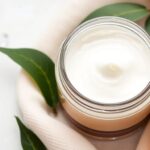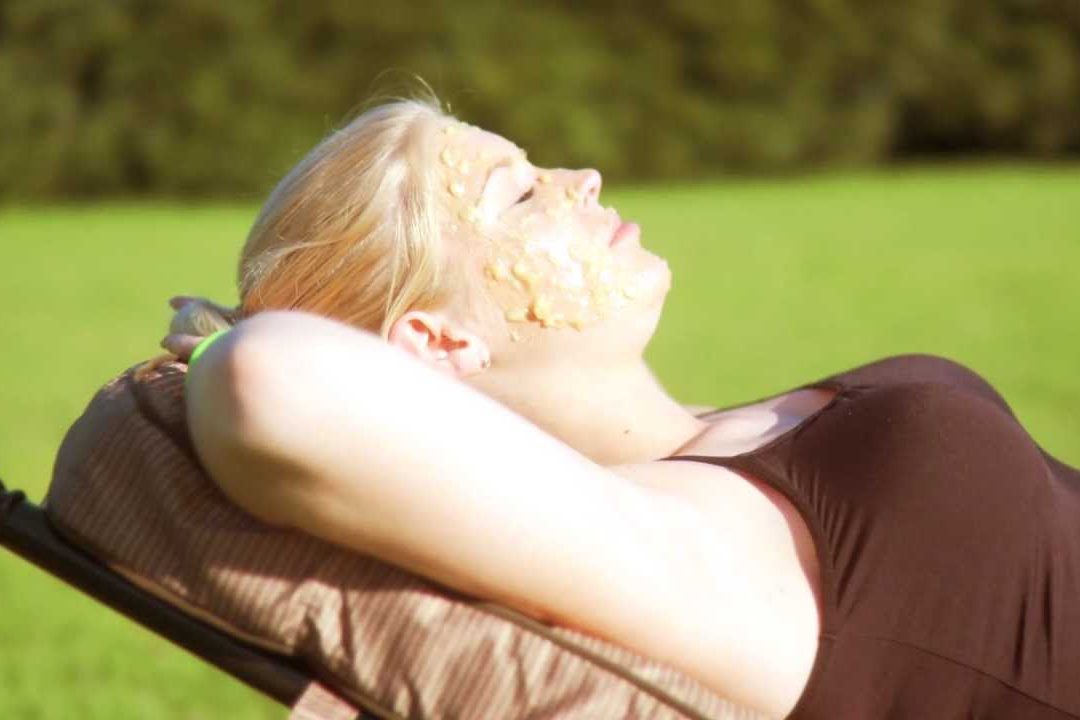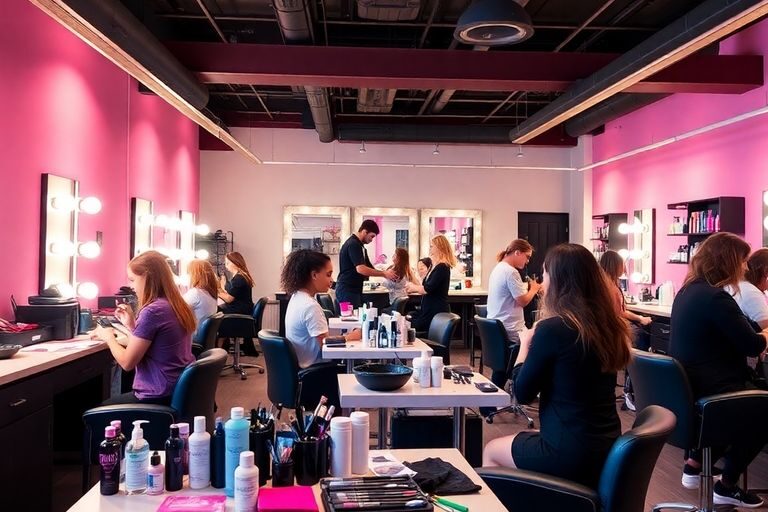If you’re on a quest for ageless skin, you’re in the right place. This guide is all about timeless skin care, helping you understand what your skin really needs as it ages. We’ll explore everything from natural ingredients that work wonders to creating a routine that fits your lifestyle. Let’s get started on your journey to radiant, youthful skin!
Key Takeaways
- Identify your skin type to tailor your skincare routine effectively.
- Use active ingredients like retinol and vitamin C for better anti-ageing results.
- Adapt your skincare practises with the seasons for optimal skin health.
- Seek professional advice for targeted skin concerns and choose experienced practitioners.
- Maintain a healthy lifestyle with good nutrition, hydration, and stress management for glowing skin.
Understanding Your Skin’s Needs
Before we even think about fancy serums or the latest treatments, it’s vital to understand what your skin actually needs. We’re all different, and what works for your best mate might not work for you. So, let’s get to know your skin a bit better.
The Science of Skin Ageing
Okay, so let’s talk about ageing. It’s inevitable, but understanding the process can help us slow it down a bit. Basically, as we age, our skin produces less collagen and elastin – these are the things that keep our skin plump and bouncy. Sun damage, pollution, and even stress can speed up this process.
Identifying Your Skin Type
Knowing your skin type is the first step to creating a skincare routine that actually works. There are generally four main skin types: oily, dry, combination, and sensitive. Each has its own quirks and needs.
- Oily Skin: Tends to be shiny, with enlarged pores and prone to breakouts. The key is to use lightweight, non-comedogenic products.
- Dry Skin: Feels tight, can be flaky, and often looks dull. Hydration is your best friend – think rich moisturisers and hydrating serums.
- Combination Skin: A mix of oily and dry areas, usually with an oily T-zone (forehead, nose, and chin) and dry cheeks. You’ll need to balance hydration and oil control.
- Sensitive Skin: Easily irritated, prone to redness, and may react to certain ingredients. Gentle, fragrance-free products are essential.
Common Skin Concerns and Solutions
We all have those little skin gripes that we’d love to fix. Here are a few common concerns and some simple solutions:
- Acne: Can be caused by excess oil, bacteria, and inflammation. Look for products with salicylic acid or benzoyl peroxide.
- Fine Lines and Wrinkles: A natural part of ageing, but can be minimised with retinol, antioxidants, and sun protection.
- Dryness: Often caused by dehydration or harsh products. Hydrating serums, rich moisturisers, and avoiding hot showers can help.
- Redness and Sensitivity: Can be triggered by various factors, including genetics, allergies, and harsh ingredients. Gentle, fragrance-free products and avoiding known irritants are key.
I always try to listen to my skin and adjust my routine as needed. Sometimes it’s as simple as switching to a gentler cleanser or adding a hydrating mask once a week. It’s all about finding what works for you and being consistent.
Natural Ingredients for Ageless Beauty
I’m a huge fan of using what nature provides, especially when it comes to skincare. There’s something comforting about using ingredients that have been used for ages; our bodies seem to recognise and respond well to them. Let’s explore some natural wonders that can help us achieve that ageless beauty we’re all after.
Harnessing the Power of Botanicals
Botanicals are basically plants, or parts of plants, used for their beneficial properties. They’ve been used in skincare for ages, and for good reason. They’re often packed with vitamins, minerals, and antioxidants that can do wonders for your skin.
- Aloe Vera: Soothes and hydrates the skin. Great for sunburns, too! I find it especially useful after a day in the garden.
- Chamomile: Calming and anti-inflammatory. Perfect for sensitive skin. I sometimes add chamomile tea to my bath for a relaxing soak.
- Green Tea: Rich in antioxidants, helps protect against environmental damage. I love drinking green tea extract, but it’s also fantastic in skincare products.
The Role of Antioxidants
Antioxidants are like the bodyguards of our skin. They protect us from free radicals, which can damage skin cells and speed up ageing. Think of them as little warriors fighting off the bad guys!
- Vitamin C: Brightens the skin and boosts collagen production. I try to include vitamin C in my morning routine.
- Vitamin E: A powerful antioxidant that helps to protect the skin from damage. I often look for moisturisers containing vitamin E.
- Resveratrol: Found in grapes and berries, it helps to protect against sun damage. I enjoy a glass of red wine occasionally, knowing it has some benefits!
Incorporating antioxidants into your diet and skincare routine is a simple way to give your skin a fighting chance against the effects of ageing. It’s not a miracle cure, but it definitely makes a difference over time.
Essential Oils for Skin Health
Essential oils aren’t just for aromatherapy; they can also be amazing for your skin. However, it’s important to use them correctly, as they’re very concentrated. Always dilute them with a carrier oil like jojoba or almond oil.
- Lavender Oil: Calming and soothing, great for reducing redness and irritation. I use it before bed to help me relax.
- Rosehip Oil: Rich in vitamins and essential fatty acids, it helps to improve skin tone and texture. I’ve noticed a real difference in my skin’s radiance since using rosehip oil.
- Tea Tree Oil: Known for its antibacterial properties, it’s great for treating acne and blemishes. I use it as a spot treatment when needed.
| Essential Oil | Benefits | How to Use |
|---|---|---|
| Lavender | Calming, reduces redness | Dilute with carrier oil, apply topically |
| Rosehip | Improves skin tone and texture | Dilute with carrier oil, apply topically |
| Tea Tree | Antibacterial, treats acne and blemishes | Dilute with carrier oil, use as spot treatment |
Crafting Your Timeless Skin Care Routine

Okay, so you’re ready to build a skincare routine that actually works? Forget those complicated routines you see online. I’m all about keeping it simple, effective, and, most importantly, something you’ll actually stick to. It’s about finding what works for you.
Morning Rituals for Radiance
My morning routine is all about waking up my skin and protecting it for the day ahead. It’s quick, easy, and sets me up for success.
- Cleansing: I start with a gentle cleanser to remove any oil or sweat that’s built up overnight. Nothing too harsh, just something to freshen up my face. gentle cleanser is key.
- Serum: Next, I apply a vitamin C serum. It’s packed with antioxidants and helps to brighten my skin and protect it from environmental damage.
- Moisturiser: Hydration is key! I use a lightweight moisturiser to keep my skin hydrated throughout the day.
- Sunscreen: This is non-negotiable! I apply a broad-spectrum sunscreen with at least SPF 30 every single day, even when it’s cloudy. Sun damage is the biggest cause of premature ageing, so this is the most important step.
I find that keeping my morning routine consistent really helps to improve my skin’s overall health and radiance. It’s a small investment of time that pays off big in the long run.
Evening Care for Repair
My evening routine is all about repairing and rejuvenating my skin while I sleep. It’s a bit more involved than my morning routine, but it’s worth it.
- Double Cleanse: I start with an oil-based cleanser to remove makeup and sunscreen, followed by a gentle cleanser to remove any remaining dirt and grime. This ensures my skin is completely clean before I apply any other products.
- Exfoliate (1-2 times per week): I use a gentle chemical exfoliant, like an AHA or BHA, to remove dead skin cells and improve skin texture. I don’t do this every night, as it can be too harsh on my skin.
- Retinol: I apply a retinol serum to help reduce the appearance of fine lines and wrinkles. Retinol can be irritating, so I started using it slowly, only a couple of times a week, and gradually increased the frequency as my skin got used to it.
- Night Cream: I finish with a rich night cream to deeply hydrate my skin and help it repair itself overnight.
Seasonal Adjustments for Optimal Health
My skincare routine isn’t set in stone. I adjust it depending on the season to address my skin’s changing needs. What works in the summer might not work in the winter, and vice versa.
- Summer: In the summer, I focus on lightweight products that won’t clog my pores. I also use a higher SPF sunscreen and make sure to reapply it throughout the day.
- Winter: In the winter, I focus on hydrating products to combat dryness. I use a thicker moisturiser and sometimes add a facial oil to my routine.
- Spring/Autumn: During these transitional seasons, I pay close attention to my skin and adjust my routine as needed. I might add a hydrating mask or switch to a lighter moisturiser, depending on how my skin is feeling.
| Season | Focus | Products |
|---|---|---|
| Summer | Lightweight, Protection | Gel moisturiser, High SPF sunscreen |
| Winter | Hydration, Repair | Rich cream, Facial oil, Hydrating mask |
I find that being flexible with my skincare routine and adjusting it to the seasons helps me to maintain healthy, radiant skin all year round.
The Importance of Professional Guidance
I’ve learned that while a solid skincare routine and healthy lifestyle are vital, sometimes you need a bit of professional help to really achieve timeless skin. Knowing when to seek expert advice can make all the difference.
Consultations for Personalised Care
Think of your skin as unique – because it is! What works wonders for your best mate might do absolutely nothing for you. That’s where personalised care comes in. A consultation with a dermatologist or aesthetician is like getting a bespoke suit made for your skin.
- Targeted Solutions: Instead of using products that address general concerns, you get stuff that tackles your specific issues head-on. Got redness? There’s a serum for that. Annoyed by those pesky fine lines? A cream can help.
- Reduced Irritation: By avoiding ingredients that don’t suit your skin, you’re less likely to experience irritation, breakouts, or allergic reactions. It’s all about keeping your skin happy and calm.
- Better Results: When you use products designed for your skin, you’re more likely to see real, noticeable improvements. Think brighter, smoother, and healthier-looking skin.
I always make sure to have a thorough consultation before any treatment. This gives me a chance to ask questions, discuss my concerns, and get a feel for the practitioner’s expertise.
Understanding Treatments and Procedures
Okay, so you’re considering a professional treatment? It’s a big step! There are so many options out there, from laser resurfacing to fillers, and it can all feel a bit overwhelming. Understanding what each treatment involves, its potential benefits, and the possible risks is super important.
Here’s a quick rundown of some common anti-wrinkle options:
- Dermal fillers: These involve injecting substances, often hyaluronic acid, to plump up the skin and reduce the appearance of lines. The effects are temporary, usually lasting several months.
- Fine Lines Muscle Relaxing Injections: These work by relaxing the muscles that cause wrinkles, particularly around the forehead and eyes. Again, the results aren’t permanent, so repeat treatments are needed.
- Laser resurfacing: This is a more intensive treatment that removes the outer layers of damaged skin, stimulating collagen production and reducing wrinkles. It can have a longer recovery time but can provide more significant results.
Choosing Qualified Practitioners
This is non-negotiable. When considering any professional treatment, finding a qualified and experienced practitioner is absolutely vital. I always do my research, check credentials, and read reviews before booking anything.
Here’s why it matters:
- Safety: Qualified practitioners understand the anatomy of the face and can minimise the risk of complications.
- Effectiveness: They can assess your skin properly and recommend the most appropriate treatment for your needs.
- Realistic expectations: A good practitioner will be honest about what can be achieved and manage your expectations.
Lifestyle Factors That Influence Skin Health
It’s not just about creams and serums; your lifestyle has a massive impact on your skin. Honestly, I’ve seen amazing transformations just from people tweaking their daily habits. Let’s get into it.
Nutrition for Radiant Skin
You know the saying, "You are what you eat"? Well, it’s true for your skin too. Load up on the good stuff, and your skin will thank you for it. I’m talking about a diet packed with antioxidants, healthy fats, and all those lovely vitamins. Think of it as feeding your skin from the inside out. I’ve found that when I eat better, my skin just glows – it’s pretty amazing. A balanced diet is key to healthy skin.
- Antioxidants: Berries, leafy greens, and even dark chocolate (yes, really!) are your friends. They fight off those pesky free radicals that cause damage.
- Healthy Fats: Avocado, nuts, and oily fish like salmon are brilliant for keeping your skin supple and hydrated.
- Vitamins: Vitamin C (citrus fruits), Vitamin E (almonds), and Vitamin A (sweet potatoes) are all essential for skin health.
I always try to incorporate a colourful variety of fruits and vegetables into my meals. It’s not just about ticking boxes; it’s about enjoying delicious, wholesome food that makes me feel good from the inside out. Plus, it’s a great excuse to try new recipes!
Hydration and Its Benefits
Water, water, everywhere! Seriously, staying hydrated is one of the easiest and most effective things you can do for your skin. Dehydration can lead to dryness, dullness, and even more noticeable wrinkles. I aim for at least eight glasses a day, and I really notice the difference when I’m consistent.
- Carry a water bottle with you and sip throughout the day.
- Eat water-rich foods like cucumber and watermelon.
- Herbal teas count towards your daily intake too!
Stress Management Techniques
Stress is a killer – not just for your mental health, but for your skin too. When you’re stressed, your body releases cortisol, which can trigger breakouts, inflammation, and even accelerate ageing. Finding healthy ways to manage stress is crucial. For me, it’s all about finding what works and making it a regular thing. Managing stress is vital for maintaining healthy skin.
- Mindfulness and Meditation: Even a few minutes a day can make a difference.
- Exercise: Gets those endorphins flowing and helps to clear your head.
- Hobbies: Make time for things you enjoy, whether it’s reading, painting, or gardening.
Debunking Myths About Ageing Skin
Let’s face it, we’re all bombarded with messages about ageing skin. It’s easy to get caught up in the hype and believe everything you hear. But I’m here to tell you that not everything is as it seems. Let’s bust some common myths and get to the truth about anti-ageing products.
Common Misconceptions
There are so many misconceptions floating around about ageing skin, it’s hard to know what to believe. Here are a few of the most common ones I hear:
- Myth: Wrinkles are inevitable and there’s nothing you can do about them.
- Truth: While genetics play a role, lifestyle factors like sun exposure and smoking have a huge impact. Protecting your skin and making healthy choices can significantly slow down the process.
- Myth: You need to spend a fortune on expensive products to see results.
- Truth: Price doesn’t always equal effectiveness. There are plenty of affordable skincare options that can deliver great results. It’s more about finding the right ingredients for your skin type.
- Myth: Once you start seeing wrinkles, it’s too late to do anything about it.
- Truth: It’s never too late to start taking care of your skin! While you can’t completely reverse the signs of ageing, you can definitely improve your skin’s health and appearance at any age.
The Truth About Anti-Ageing Products
Anti-ageing products can be a bit of a minefield. Here’s what you need to know:
- Ingredients matter: Look for products containing ingredients like retinol, vitamin C, and hyaluronic acid. These have been scientifically proven to help improve skin texture, reduce wrinkles, and boost hydration.
- Consistency is key: You won’t see results overnight. It takes time and consistent use to see a difference. Be patient and stick with your routine.
- Sunscreen is your best friend: No matter what anti-ageing products you use, sunscreen is the most important step in preventing premature ageing. Wear it every day, rain or shine.
It’s important to remember that anti-ageing products are not a magic bullet. They can help improve your skin’s appearance, but they won’t stop the ageing process completely. The goal is to age gracefully and healthily, not to look like you’re 20 forever.
Embracing Natural Changes
Ageing is a natural part of life, and it’s something to be embraced, not feared. Here’s how to shift your mindset:
- Focus on health, not perfection: Instead of obsessing over wrinkles, focus on taking care of your overall health. Eat a balanced diet, exercise regularly, and get enough sleep. When you feel good on the inside, it shows on the outside.
- Celebrate your experiences: Your wrinkles tell a story. They’re a reminder of all the laughter, tears, and experiences you’ve had throughout your life. Embrace them as a sign of a life well-lived.
- Find joy in the present: Don’t spend your time worrying about getting older. Focus on enjoying the present moment and making the most of each day. After all, age is just a number!
Long-Term Strategies for Timeless Skin

Okay, so we’ve covered a lot about immediate skincare, but what about the long game? It’s not just about quick fixes; it’s about building habits that will keep your skin looking great for years to come. Let’s talk about how to make timeless skin a reality.
Building a Sustainable Routine
The key to long-term success is creating a routine you can actually stick to. Forget complicated, multi-step processes if you know you won’t keep them up. Start simple and build from there. Think about what you enjoy doing, not just what you should be doing. For example, I love a good face massage, so I incorporate that into my routine a few times a week. It feels good, and it’s good for my skin! A sustainable routine also means choosing products that are readily available and affordable for you. No point falling in love with something you can’t easily replace.
The Role of Consistency
Consistency is where the magic happens. You can have the best products in the world, but if you’re not using them regularly, you won’t see results. Think of it like going to the gym – you can’t expect to get fit after one workout. It’s the same with skincare. Aim for consistency, even when you’re tired or busy. A quick cleanse and moisturise is better than nothing! I find setting reminders on my phone helps me stay on track. Also, try to do your routine at the same time each day. This helps your skin get into a rhythm and respond better to the products. Remember to incorporate preventive care into your daily routine.
Monitoring Skin Changes Over Time
Your skin is constantly changing, so it’s important to pay attention and adjust your routine as needed. What worked for you in your 20s might not work in your 40s. Keep an eye out for changes in texture, tone, and hydration levels.
Here are some things to watch out for:
- Increased dryness
- More visible fine lines and wrinkles
- Changes in pigmentation
- Increased sensitivity
If you notice any significant changes, don’t hesitate to consult a dermatologist or skincare professional. They can help you identify the cause and recommend appropriate treatments. I also like to take photos of my skin every few months to track progress and identify any subtle changes I might otherwise miss. It’s a great way to see how your routine is working and make adjustments as needed. Remember, embracing age with confidence is key, and understanding your skin’s needs is part of that journey. Consider incorporating essential steps for daily care into your routine.
Embrace Your Timeless Skin Journey
As we wrap up our chat about keeping your skin looking youthful, remember that skincare is a personal adventure. It’s not just about slapping on products; it’s about really getting to know your skin and what it craves. From protecting yourself from the sun to staying hydrated and eating well, every little effort adds up. Don’t shy away from seeking advice that’s tailored to your specific skin needs. With the right mindset and approach, you can enjoy healthy, glowing skin at any age. So take these tips to heart and start building your own skincare routine today. Your skin will definitely appreciate it!
Frequently Asked Questions
What causes my skin to age?
As we get older, our skin naturally starts to change. Factors like sun exposure, pollution, and even stress can make these changes happen faster.
How can I find out my skin type?
You can determine your skin type by observing how your skin feels throughout the day. If it feels oily, dry, or a combination, that can help you identify your skin type.
What are some good natural ingredients for my skin?
Some great natural ingredients include aloe vera for hydration, chamomile for calming effects, and green tea for its antioxidant properties.
How often should I change my skincare routine?
It’s important to adjust your skincare routine based on the seasons and how your skin reacts. Pay attention to your skin’s needs and make changes as necessary.
Is professional skincare advice necessary?
Getting professional advice can be very helpful, especially if you have specific skin concerns. A qualified expert can guide you on the best products and treatments for your skin.
What lifestyle changes can improve my skin?
Eating a balanced diet, drinking plenty of water, and managing stress can all contribute to healthier skin. It’s about taking care of yourself from the inside out.






